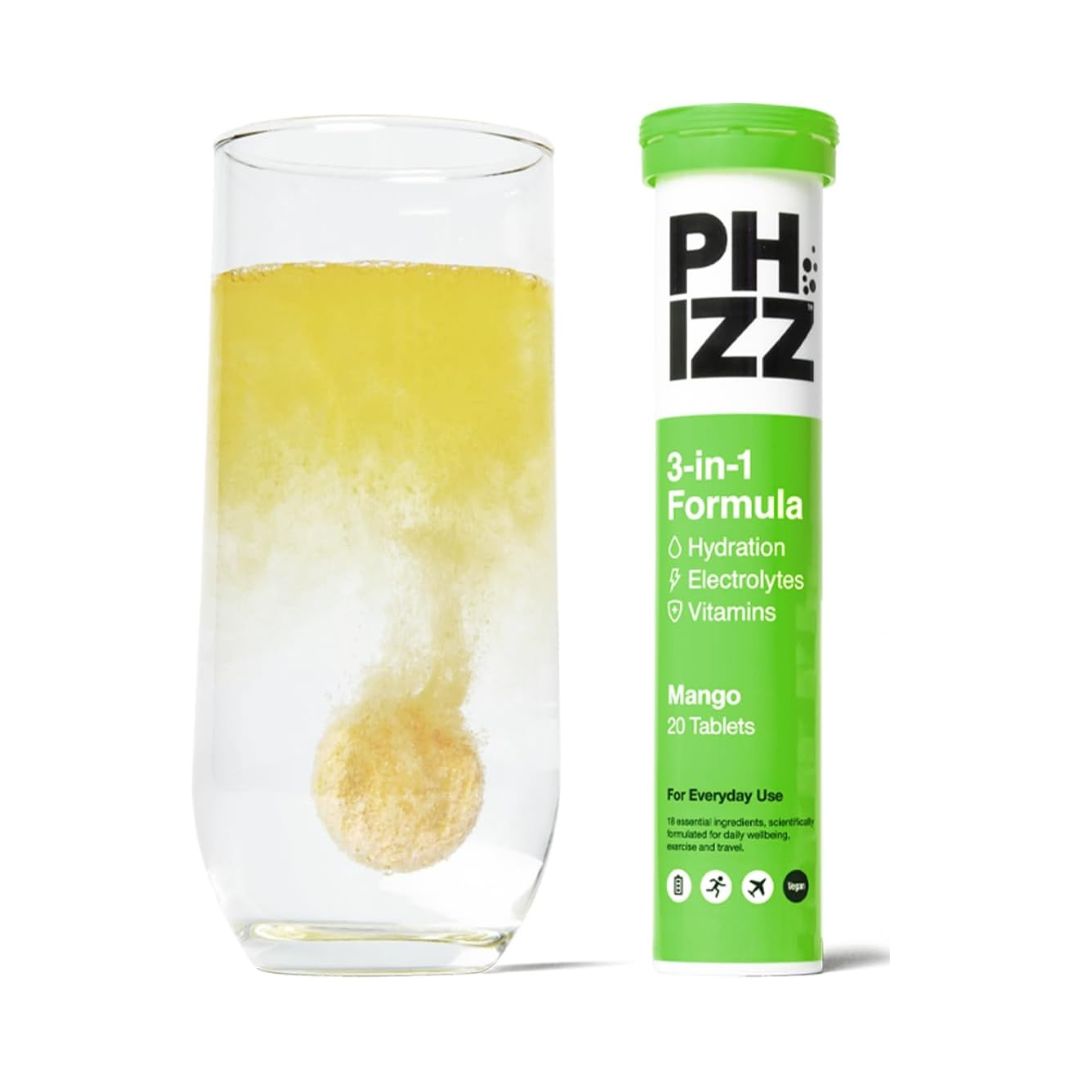So Long, Dehydration: 8 Best Electrolyte Products To Boost Muscle Recovery and Heatwave Hydration
Trust me on this one.

Amelia Yeomans
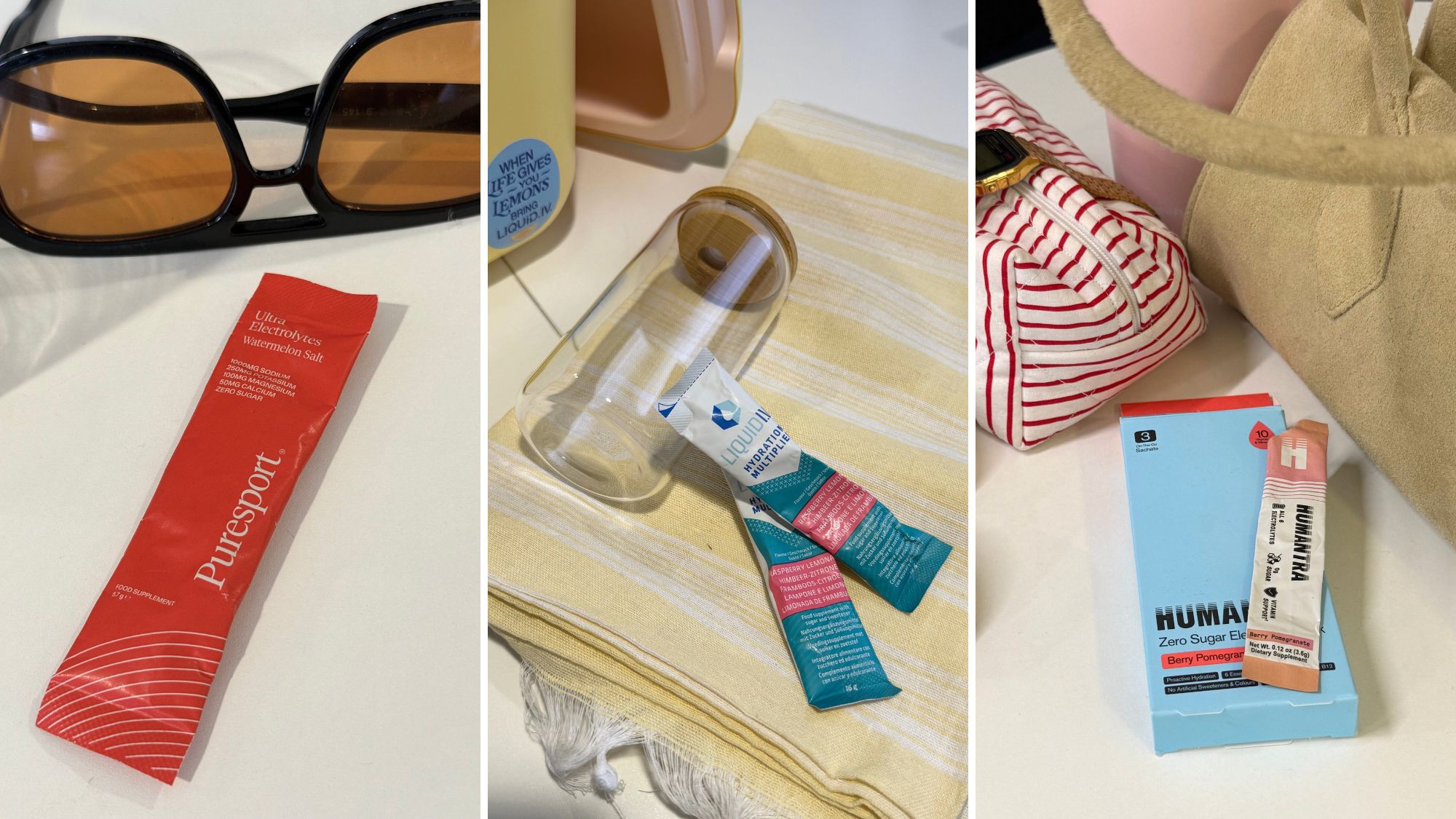
Celebrity news, beauty, fashion advice, and fascinating features, delivered straight to your inbox!
You are now subscribed
Your newsletter sign-up was successful
By now, you'll probably have noticed the softly tinted sports bottles seemingly featured in every Instagram runner's selfies. No, not a clear protein shake or carb drink - rather, electrolyte supplements promising to help runners and non-runners alike adequately hydrate.
While electrolytes are literally as old as the human body, it's only in recent years that they've really boomed on the wellness scene, not just as an essential for runners who need to replenish minerals lost via sweat, but also for the health-conscious keen to stay on top of their daily hydration.
As the Senior Health Editor here at Marie Claire UK, I'm always keeping an eye out for the latest wellness trends. Many are brilliant, others... well, not so much. I've taken electrolytes for around eight years now, since I started marathon running, but have never taken them consistently until this year. TLDR: I've been pretty surprised by the benefits I've noticed, so much so (ask anyone) I now rave about them to both family and friends.
Wondering how this impacts you? Well, stats show that as many as 75% of people are chronically dehydrated, symptoms of which can span brain fog, low energy, headaches and inflammation. And electrolytes promise to help knock that on the head even better than a trusty old pint of water, helping your cells to hydrate efficiently.
The best part? You can nab a month's supply of the handy supplements for as little as £10, making them pretty affordable for all budgets. Never heard of electrolytes but keen to learn a little more about how they could impact your overall wellbeing? Keep scrolling. And don't miss how we got on drinking apple cider vinegar, the viral Greens powder, and TikTok's trending sleepy girl mocktail daily, too.
Best electrolytes: Quick shopping links
- Puresport Ultra Electrolytes: £33 at Amazon
- Humantra Hydration Packets: £28 at Amazon
- Punchy Drinks: £26.93 at Amazon
- Phizz Electrolytes: £20 at Amazon
- Science in Sport HYDRO Electrolyte Tablets: £15.68 at Amazon
Electrolytes have changed my fitness this year - here's how
What are electrolytes?
First up: an explainer of what electrolytes actually are. In short, they're essential minerals (think sodium, magnesium, potassium and calcium) that are in almost all of the cells in your body, yet can often be lost via sweat.
As Lauren Windas, director of Ardere and registered nutritional therapist, explains, "Electrolytes are minerals that carry an electric charge and are vital to specific bodily processes to support health and physiology, such as muscle and nerve function, as well as regulating fluid balance."
Celebrity news, beauty, fashion advice, and fascinating features, delivered straight to your inbox!
Found in blood, urine, sweat and other bodily fluids, imbalances in electrolyte levels can occur due to dehydration, heavy sweating, certain medications or hormonal conditions.
While most people can replenish their levels via water and nutrition, for others who are highly active, it can be more difficult, which is where supplementation comes in.
What do electrolytes do?
In a nutshell, electrolytes work to regulate your body's fluid levels and are key for maintaining your hydration levels.
Wondering why this matters? Hydration, according to the British Dietetic Association, is important for all sorts of different bodily functions. "From our blood system carrying essential glucose, oxygen and nutrients to cells, to the kidneys getting rid of waste products we no longer want, fluid in the body is vital to allow these to occur. It also lubricates our joints and eyes, helps our digestive system function and keeps our skin healthy," shares nutritionist Johanna Hignett.
What are the benefits of taking electrolytes?
Asides from generally maintaining your overall hydration levels, electrolytes help to:
- Reduce muscle cramps or spasms
- Improve muscle performance
- Improve endurance.
How do I know if my electrolyte levels are low?
How will you know if you're low on electrolytes? Simple, according to Windas, who shares that the most obvious symptoms include:
- Muscle cramps
- Muscle weakness
- Dehydration
- Fatigue
- Confusion
- Heart palpitations
- Nausea.
The NHS lists other symptoms of electrolyte imbalance as tingling and numbness, headaches, diarrhoea, constipation, and an irritable manner.
If you have concerns that your levels might be imbalanced, do chat with your GP about having a routine electrolyte test carried out.
Why are electrolytes important?
In short, we need electrolytes in our body to function optimally. As Windas highlights, "maintaining electrolyte balance is really important for supporting overall health and wellbeing."
Most people can ensure optimal electrolyte levels by drinking plenty of water and opting for electrolyte-rich foods each day. Try make sure to drink the recommended eight litres of water a day and include the following foods:
- Bananas (high in potassium)
- Dairy products (high in calcium)
- Salt (high in sodium)
That said, if you workout a lot, supplementing might make your life that little bit easier. You see, while there's definitely a need for more up-to-date research on the matter, this 2011 study found that athletes can lose up to 3500 to 7000 mg of sodium daily.
Further studies have actually linked adequate electrolyte levels with improved sports performance, too, with one 2015 study concluding that Ironman athletes who supplemented electrolytes ran 26 minutes quicker, on average, than those who drank sports drinks sans electrolytes.
Speaking to Lillie Bleasdale, founder and head coach at PASSA, she points out that runners, in particular, will have higher fluid intake requirements than the general population. "While dehydration has a negative affect on performance, so does a lack of electrolytes, as it can result in symptoms like nausea, cramp, headaches, poor performance, and more."
While electrolytes are particularly useful for athletes or those with medical conditions that affect electrolyte levels, Windas maintains that they can be useful even if you don't workout regularly. She goes on: "Everyday supplementation of electrolytes can be useful for supporting and meeting personalised mineral needs."
I've been drinking electrolytes every day for six months - my review
Months one to three
I kicked off this year with a newfound focus - to complete a race a month and get my sports nutrition in check, in the process. I normally run a marathon a year, but for 2024, my focus was on shorter distances (think 5km, 10km, and half marathon races) and really nailing my pre- and post-race nutrition.
One of the main things I wanted to commit - and stick - to was supplementing electrolytes. I sweat a lot, you see, and have struggled with leg cramps and soreness in the past when training, which I thought could be a result of dehydration or an electrolyte imbalance.
I started by researching the many different electrolyte brands and going for the ones with the best reviews. While I've tried many in the last six months, my favourites have to be the ARTAH powder, Science in Sport tabs or Humantra sachets. Simply pop into your sports bottle and you're good to go.
So far, so good - I just needed to remember to take them. So, I popped my electrolytes on the side alongside my morning collagen that I add to my coffee and protein powder for post-workout. I'm a big fan of creating visual cues for myself and find it's the easiest way to cement a habit. That, paired with habit stacking - so, every time I grabbed my water bottle for my workout (which I do anyway), I'd pop in an electrolyte tablet, making it hard to forget.
Doing this actually meant that within the first few weeks, I felt like I was drinking more water - never a bad thing. For runs where I wasn't on a treadmill or on a track, I'd simply pop a squeezy bottle into one of my favourite hydration vests, along with my keys, wallet and other essentials.
That said, I soon noticed that I can't drink lots of water mid-workout, just like I can't eat a greens-heavy meal (runners, you'll get it). I'm quite prone to stitches, so I preferred to drink my electrolytes pre-workout or post, just as I prefer to fuel with a basic carb and protein combination pre-workout. What's important, as ever, is working out what works for you and your body.
Months four to six
Come April, I was really enjoying my new electrolyte ritual. I felt more hydrated, was experiencing basically no muscle cramps or soreness, and also felt like I could fly through my runs more easily. Interestingly, research backs this up - with one (admittedly old) 2005 paper highlighting that runners who take electrolytes before and during exercise, especially when working out somewhere hot, saw fewer muscle cramps.
I felt proud to have spent the time working out which products worked for me and my body, and also cemented a new habit. One thing that is worth being wary of - as with lots of "wellness" products currently on the market, quite a lot of the electrolyte formulas I researched were actually quite high in sugar and artificial ingredients, so it's always worth checking the label before you buy.
I also ticked off a few good races during this time period, including my second and third sub-90-minute half marathon. Of course, this was largely down to hard work and months of training, but I also feel proud of nailing some of the 1%'s this year. That is, the small, daily actions that all add up to a larger whole to make you that bit fitter and healthier. Interestingly, my recovery after both races was also speedy despite a seriously hard effort on both days.
This article was first published in June 2024 and has since been updated with new products and accurate pricing information.
8 best electrolyte products to shop now:
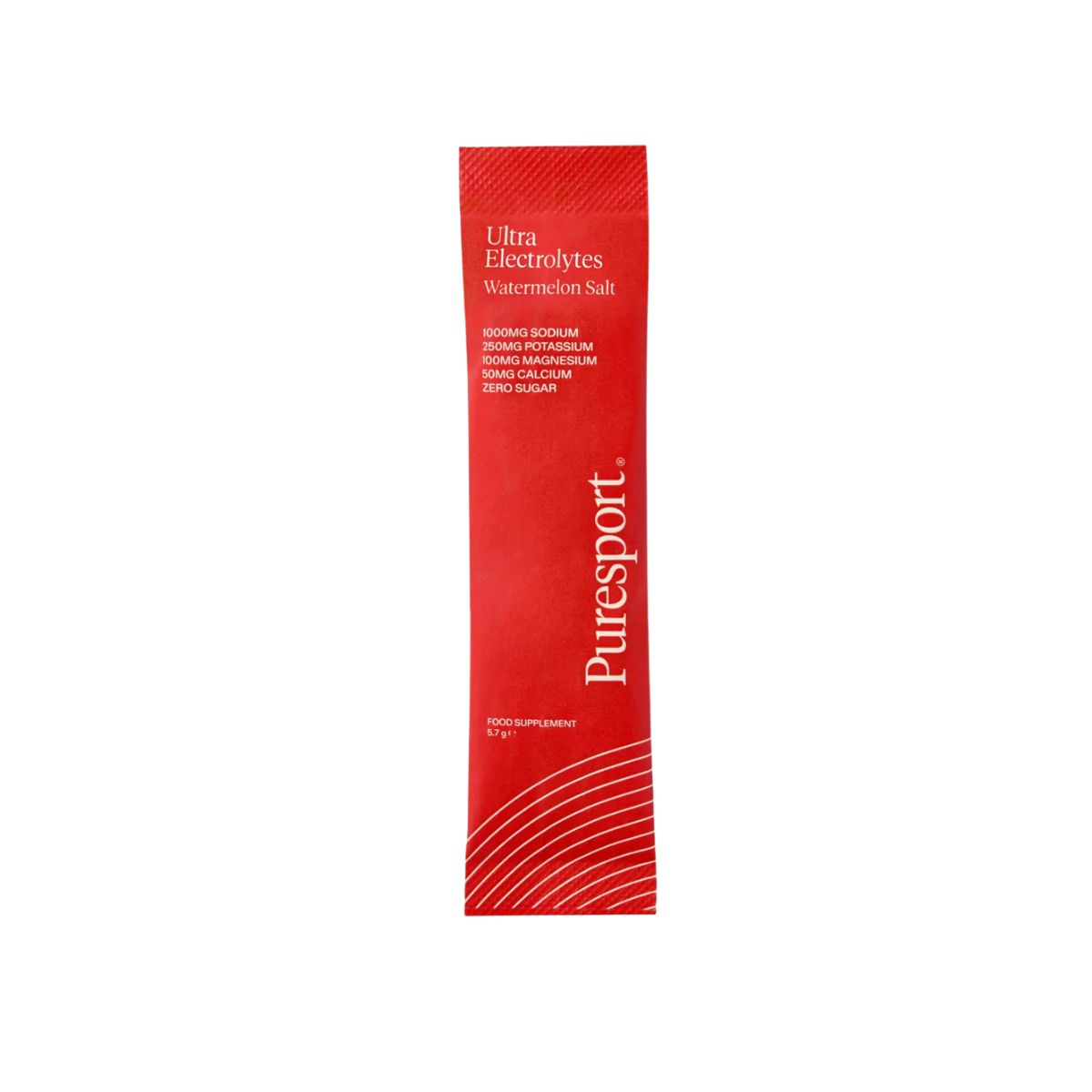
Servings: 30.
Puresport has gained a cult-like following over the past few years, with their run clubs welcoming hundreds of eager sports fans each week. The boom in interest is, in part, thanks to their products - they're genuinely effective - but also down to their genius marketing campaigns (one of the most recent saw fuel "pumps" that mirrored that of a gas station offering runners electrolyte drinks at mile 24 of the London Marathon to "fuel" them through their final miles).
While I've tried other supplements from the brand before, I hadn't had a chance to get my hands on their newest - and quickly best-selling - product, the ultra electrolyte. That was, until last month, and wow have I been pleasantly surprised (so much so, I instantly made the entire MC UK team taste the new flavour drink in the office). Their new Watermelon Salt flavour is easily one of the best-tasting options on the market, and the travel sachets are chic, easy to transport, and even easier to use.
From an anatomical perspective, each serving offers to top up your sodium (1000mg), potassium (250mg), magnesium (100mg), and tri-calcium (50mg) levels.
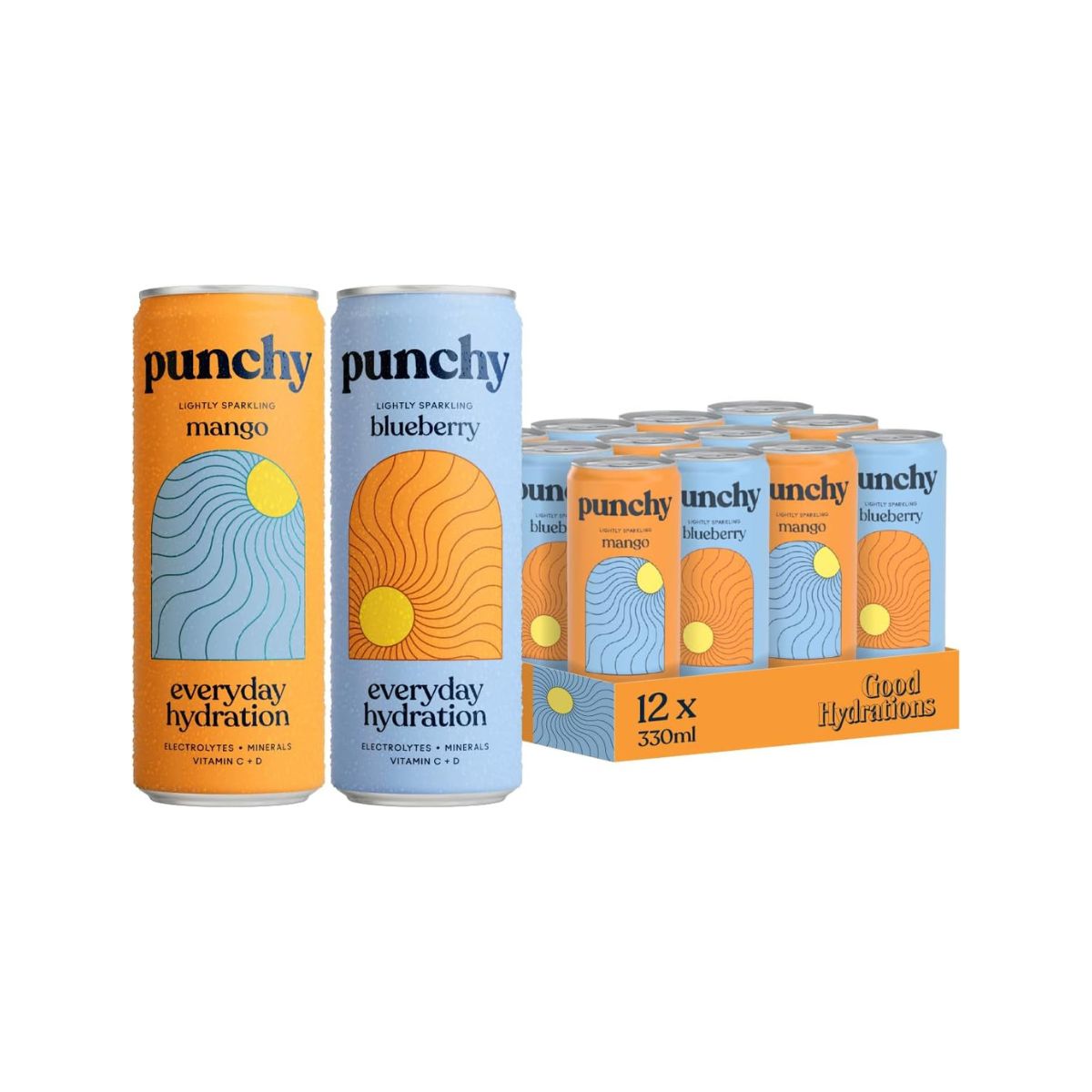
Servings: 12.
Fun fact - I recently served cans of B-Corp certified Punchy at my wedding for the non-drinkers and they went down an absolute treat. If that isn't testament to how much I love the brand, I don't know what is.
These cans are more of a grab-and-go option or choice for those of you who don't like the faff of having to scoop or pour electrolyte powder into water and mix it. That said, they also sell handy sachets that are slightly more affordable.
Coming in a range of flavours, all of their drinks are made from real fruit and all natural ingredients, sans artificial sweeteners and preservatives, and promise to be low sugar, vegan friendly and gluten free, too.
Keen to boost your electrolytes, minerals, vitamin C and D? Then you can't go far wrong with Punchy.
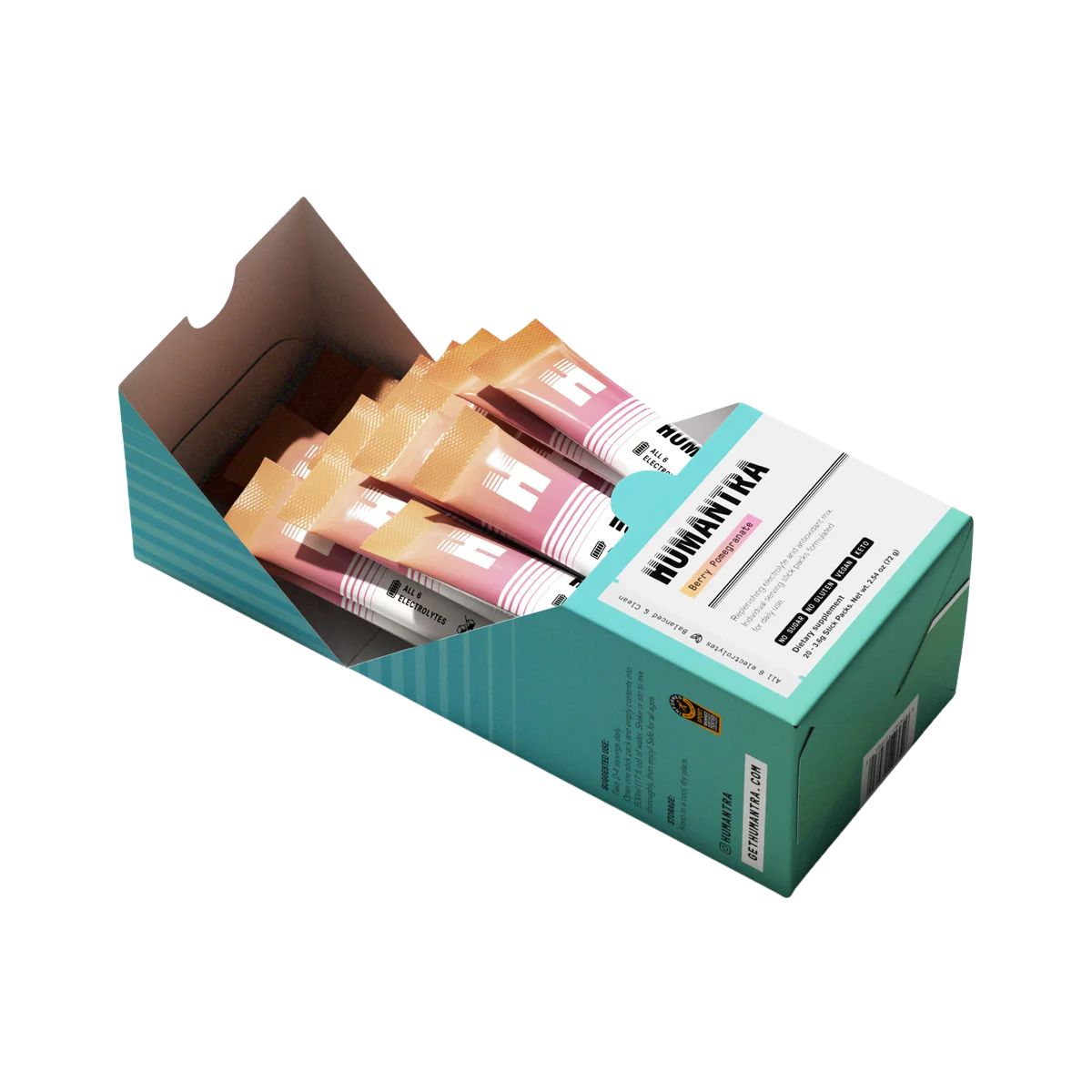
Servings: 20.
Another electrolyte brand that's exploded in popularity in recent years is Humantra, with the founders of the Innocent Drinks brand investing in the company just last month.
I've tried a fair few of their flavours, and the Berry Pomegranate is my favourite. As with SiS, it has a strong, almost squash-like flavour, but is super refreshing and hydrating for any time of day.
Each sachet is plant-based, sugar-free, and contains all six essential electrolytes, as well as 100% of your daily Vitamin C, promising to support your immune system and help to reduce tiredness and fatigue, too.
Their USP is that they claim to include four times the amount of electrolytes than other leading sports drinks, meaning you're getting good bang for buck, too.
*Add to basket* for a blend of Vitamin B12, Vitamin C , Zinc Citrate, Magnesium Citrate, and Himalayan salt.
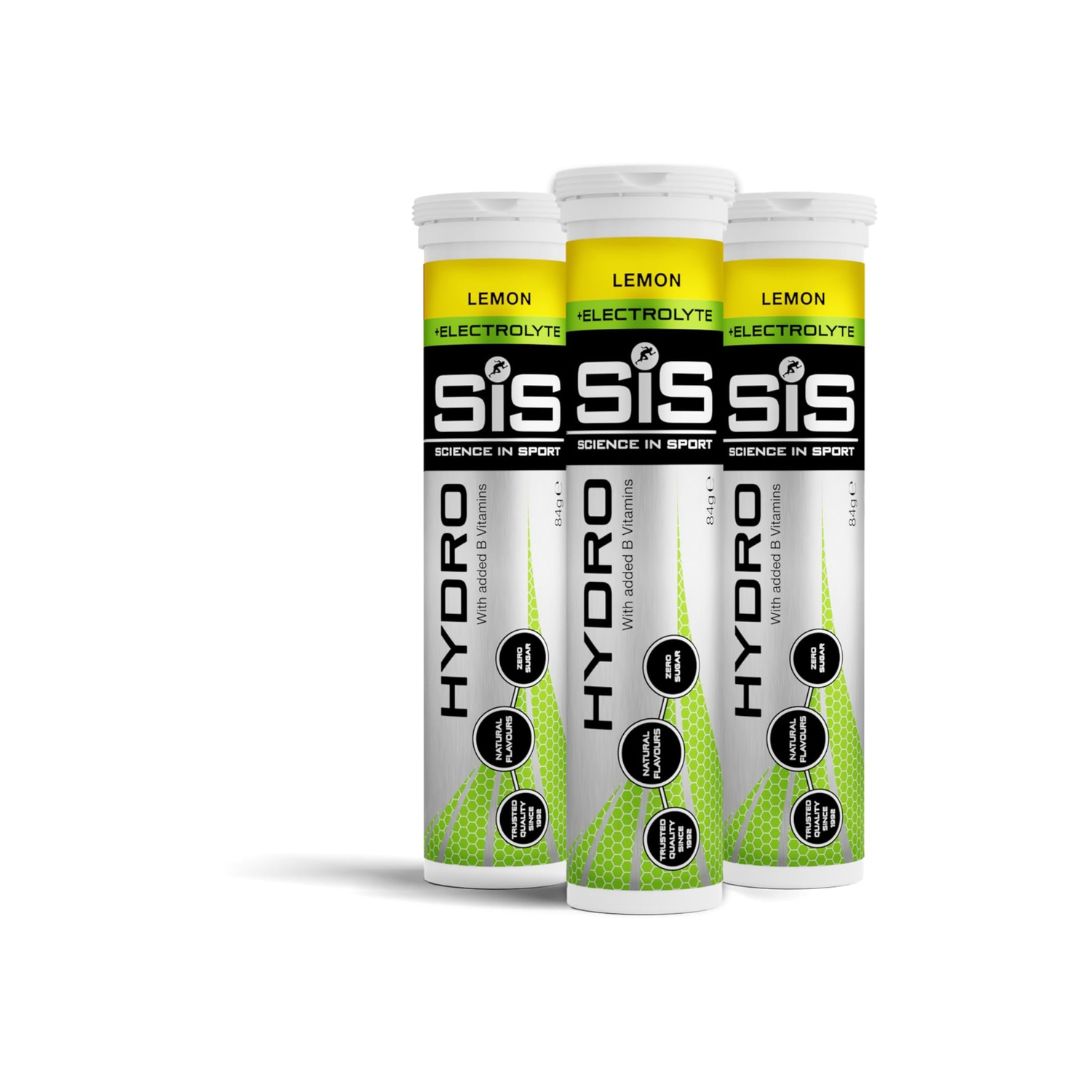
Servings: 3x packs of 20 (60 tabs).
Science in Sport was the first ever electrolyte brand I tried many moons ago, and they're a firm favourite in the sports science world. These particular tabs are gluten-free and zero-sugar. The lemon flavour is stronger than other options on the market, but not too sweet, plus they dissolve easily, making them easy to use.
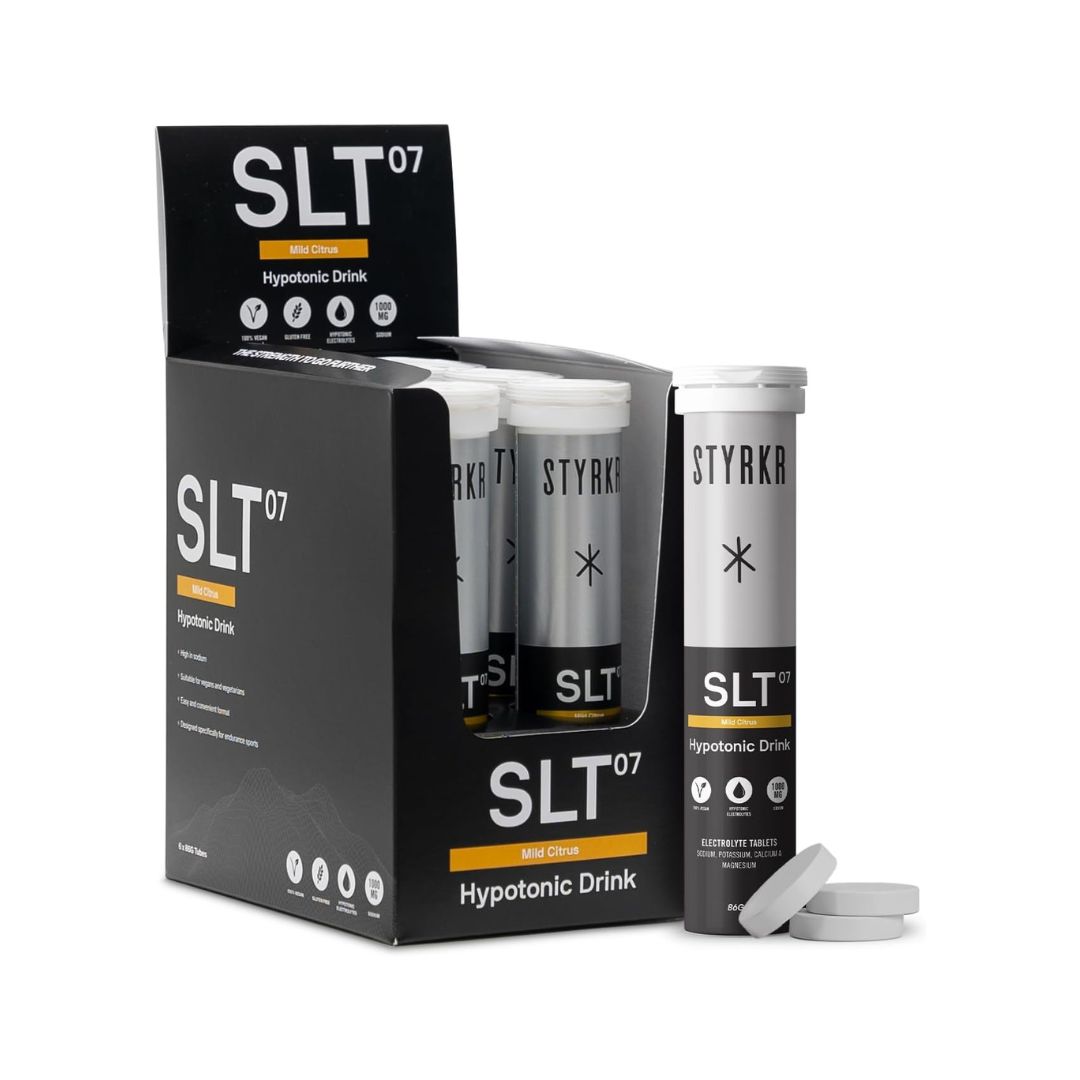
Servings: 6x packs of 12 (72 tabs).
Loved by athletes, Styrkr electrolytes offer the highest single and adjustable serving hydration tablet on the market. Get one handy serving of sodium 1000mg, potassium 100mg, magnesium 25mg and calcium 15mg in one tablet. They have a light citrusy flavour, too.
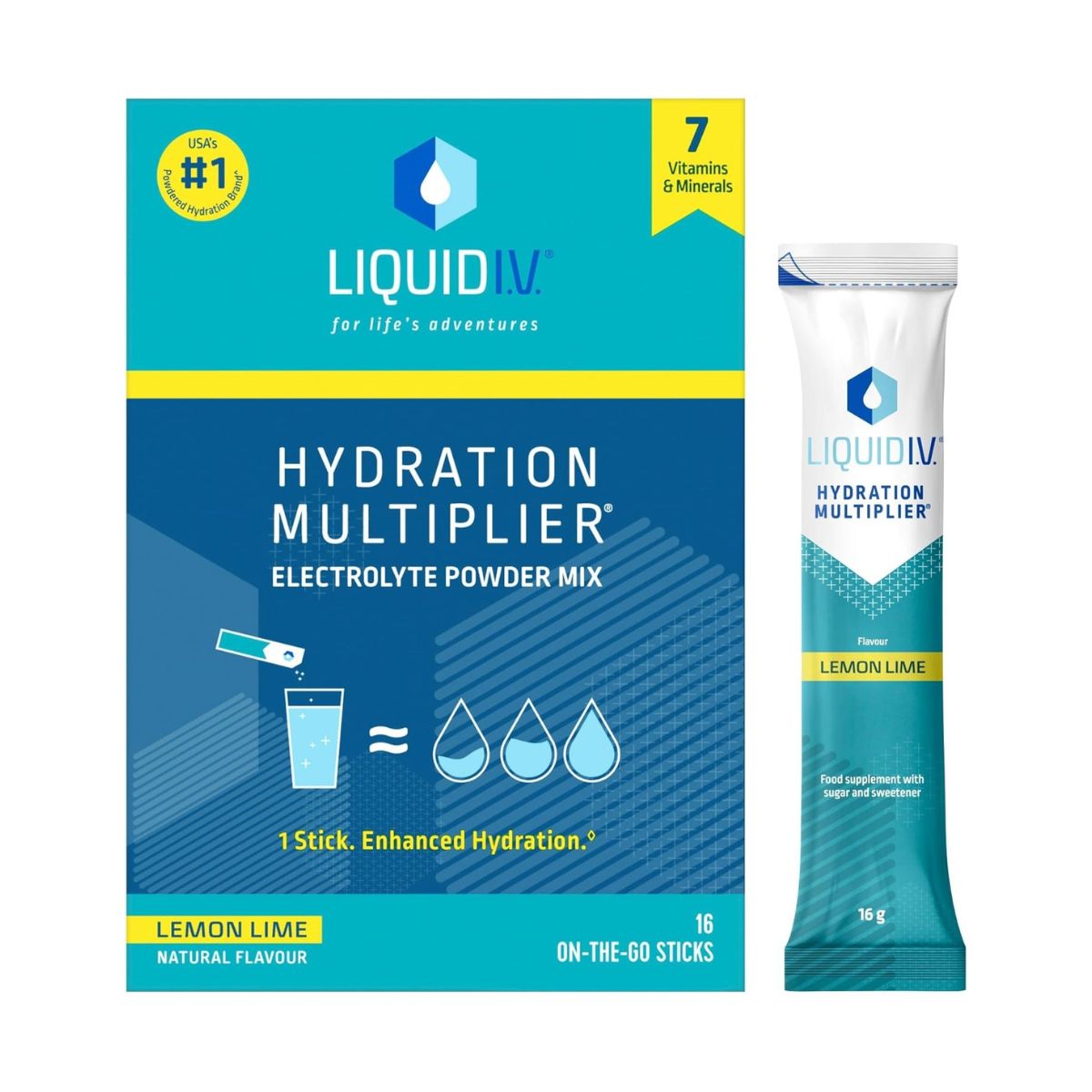
Servings: 16.
One of the most universally stocked brands of electrolyte product on the market, Liquid IV is available in Tesco, Boots, Superdrug, Sainsburys and more. They have a wide range of flavours which, again, are fairly strong tasting but refreshing, especially on a hot summer's day.
Buy for an easy-to-use, gluten-free sachet that contains vitamins B3, B5, B6, B12 and vitamin C.
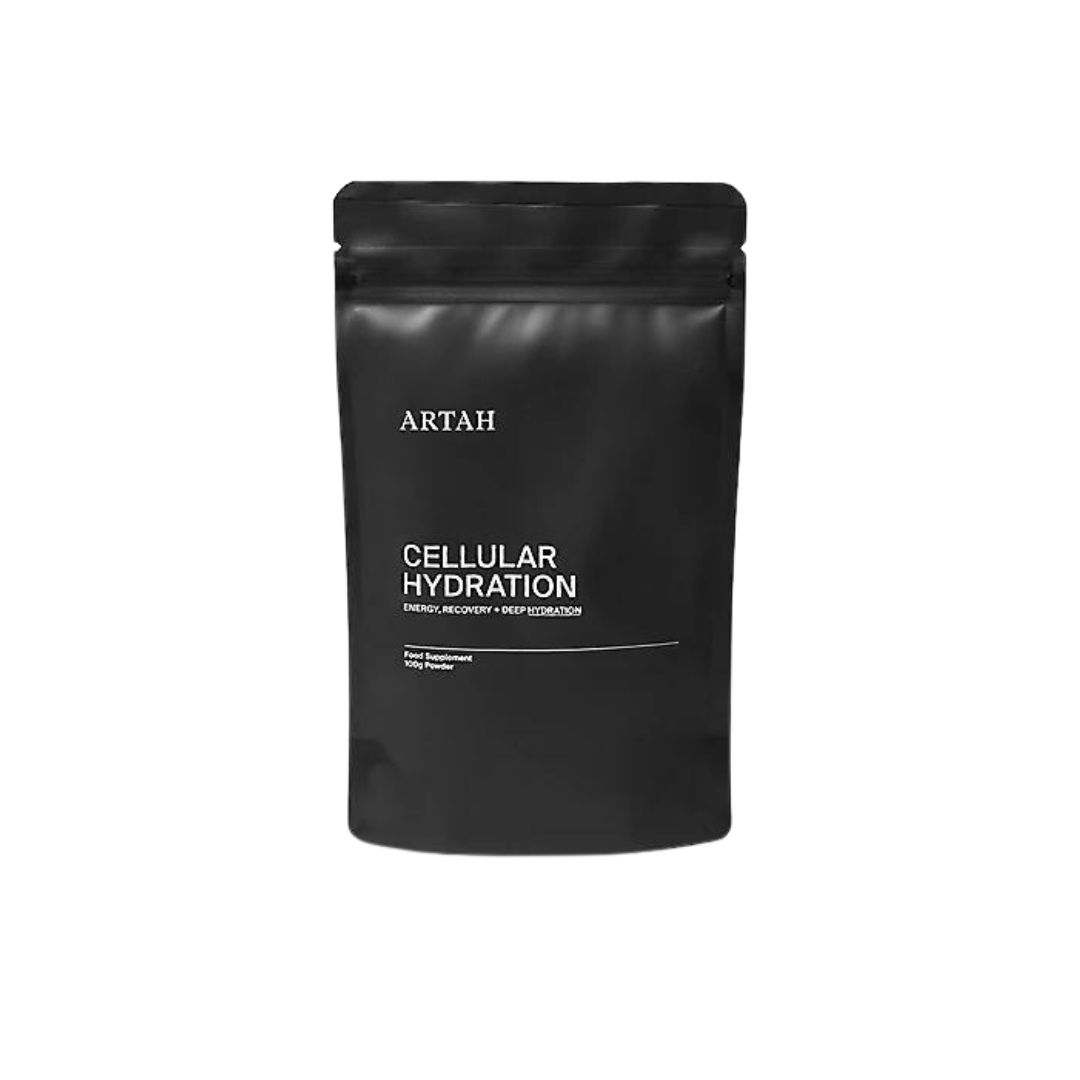
Servings: 24 x portions of 7g teaspoons.
Last but by no means least, this is currently my go-to and favourite electrolyte and comes in a powder format. It's far less sweet than other options on the market and tastes more natural, too, like a homemade lemonade.
For a more detailed, in-depth take on why I love this supplement so much, read my ARTAH Cellular Hydration review, here.

Ally is Marie Claire UK's Senior Health and Sustainability Editor, a well-regarded wellness expert, ten-time marathoner, and Boston Qualifying runner.
Utilising her impressive skillset and exceptional quality of writing, she pens investigative, review and first-person pieces that consistently demonstrate flair and originality.
As well as writing, Ally manages a team of freelancers, oversees all commissioning and strategy for her pillars, and spearheads the brand's annual Women in Sport covers, interviewing and shooting the likes of Mary Earps, Millie Bright, and Ilona Maher. Shortlisted for three BSMEs and winning one in 2022, Ally lives and breathes her verticals: her eye for a story and connections within the wellness sphere are unrivalled. Follow Ally on Instagram for more.
- Amelia YeomansJunior Shopping Editor
